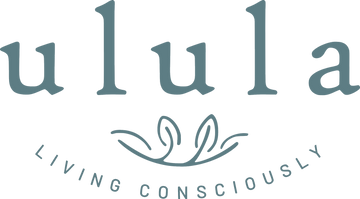It seems that hardly a month goes by without more evidence that the chemical nasties sprayed on our food in so-called 'conventional farming' are bad for the health of our babies and growing children. The importance of feeding babies a largely organic diet cannot be overstated. For more about the latest study and how to protect your baby, read on...
Last month's edition of the internationally respected journal 'Pediatrics' carried an article suggesting that even low levels of chemical pesticides are associated with an increased risk of attention-deficit hyperactivity disorder (ADHD) in children.
Researchers at the University of Montreal and Harvard University looked for organophosphate pesticide metabolites, an indicator of pesticide exposure, in the urine of 1,139 kids ages 8 to 15 and found that close to 95 percent had at least one of these chemical byproducts in their system. Those with the highest levels were 93 percent more likely to have received an ADHD diagnosis than children with none in their system. Those with above-average levels of the most common organophosphate byproduct - they made up a third of the whole group - were more than twice as likely as the rest to have ADHD.
Even Low Levels of Pesticides are Harmful
"This is not a small effect," says study co-author Maryse Bouchard, a researcher in the University of Montreal's environmental and occupational health department, "and it is certainly cause for concern." She adds that while prior research has proved that high levels of organophosphate exposure can have negative impacts on children's behavior and cognitive function, in this study "we are talking about very low levels of exposure . . . levels that were believed previously to be safe and harmless but which are now associated with a serious health risk." She points out that most pesticide exposure today comes through food, particularly conventional fruits and vegetables.
Reducing Pesticide Intake in Babies
So what can concerned mums do to protect their precious babies? You'd be hard-pressed to find an expert who doesn't advise that people, especially pregnant women and small children,
reduce their pesticide intake as much as possible.
The top recommendation is
to eat an entirely fresh organic diet, which has been shown to significantly lower children's pesticide exposure levels. For many that is not reasonable or possible as there just isn't the variety of foods always available that you would like to feed to your baby.
It also helps to
carefully wash and scrub all your fruits and vegetables thoroughly in cold water. But be aware that you can't scrub away all the risks because most pesticides don't wash off, and seep into the produce itself.
A more practical answer for many parents is to avoid fresh non-organic foods that have the highest risks because of the large amount of pesticides used on them and the porous nature of their skins in retaining pesticides. See an earlier article on
Weaning Your Baby With Organic Food - Pesticides in Fruit and Vegetables for more information. The list provided there gives us useful guide if we are serious about feeding our babies a safe and wholesome diet.
Of course, you want your baby to grow up enjoying a varied diet and so, whilst avoiding the non-organic fruits and vegetables that pose the highest pesticide risk, why not
top up mealtimes with some guaranteed pesticide free baby foods?
Pesticide Free Baby Food
Many parents tell me that the large variety of
Holle baby jars perfectly complemented by their
huge range of organic baby porridges, alongside the homemade food that mum makes from locally bought fruit and vegetables makes the ideal combination. This mix and match approach will help you avoid pesticides while giving your baby the nutritional variety he or she needs.
Share your experiences with other parents. How do you make sure you avoid feeding your baby a cocktail of chemical nasties?


